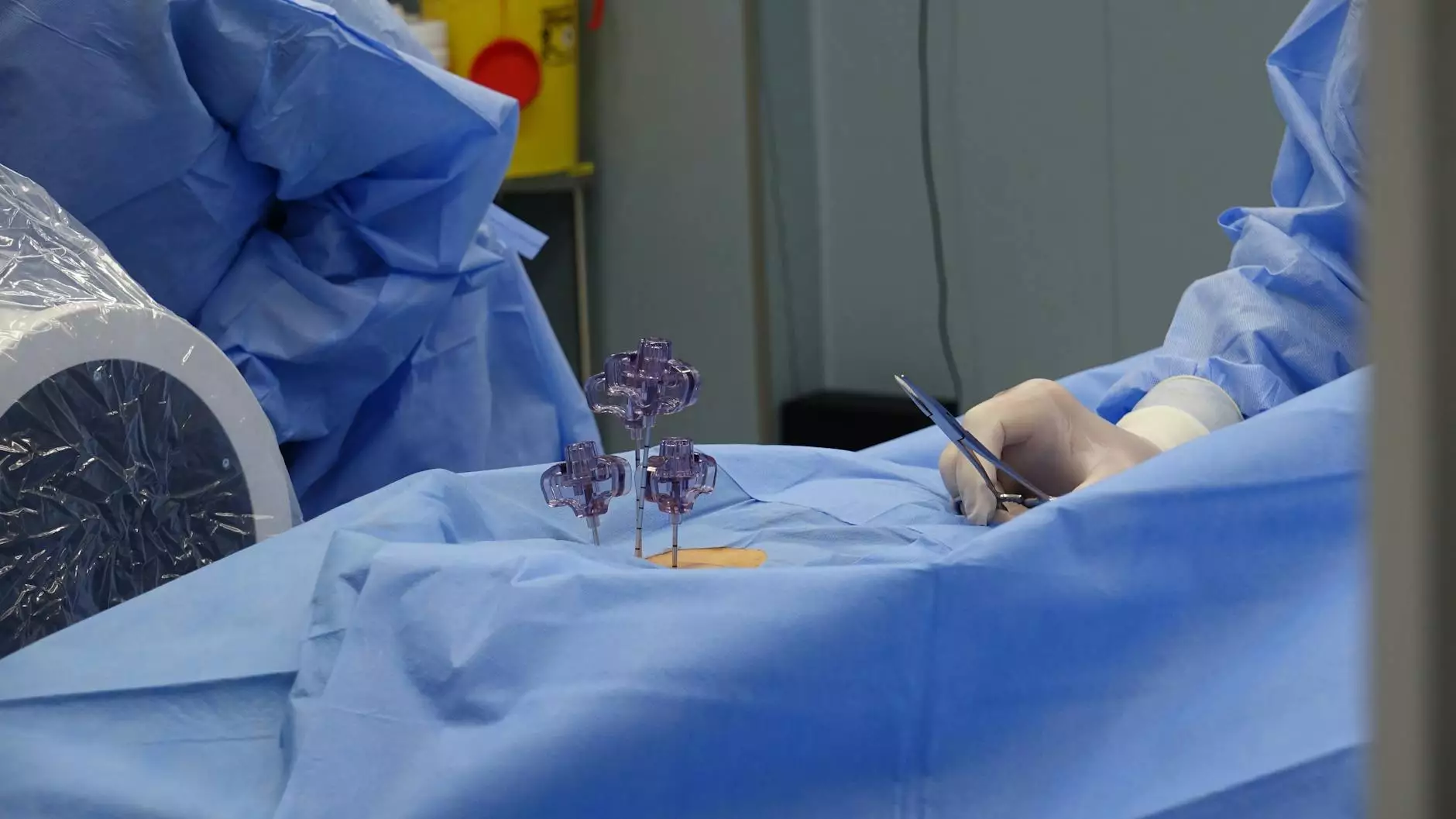Sleeve Gastrectomy: A Comprehensive Guide to Transformative Health

In recent years, sleeve gastrectomy has emerged as one of the most effective surgical weight loss procedures available. This transformative operation not only leads to significant weight loss but also contributes profoundly to overall health improvement. If you're considering this life-altering procedure, understanding its intricacies can empower you to make informed decisions about your health and well-being.
What is Sleeve Gastrectomy?
Sleeve gastrectomy, often referred to as gastric sleeve surgery, is a minimally invasive procedure that involves the removal of approximately 80% of the stomach. The remaining portion of the stomach is shaped like a sleeve or tube, which limits food intake and creates a feeling of fullness after consuming small amounts of food.
Why Choose Sleeve Gastrectomy?
There are several critical reasons patients opt for sleeve gastrectomy, including:
- Significant Weight Loss: Patients typically lose 60-70% of their excess weight within 12-18 months post-surgery.
- Improvement of Obesity-Related Conditions: Conditions such as type 2 diabetes, hypertension, and sleep apnea often see considerable improvement.
- Reduced Hunger Hormones: The procedure reduces ghrelin, a hormone that stimulates appetite, helping patients manage their hunger more effectively.
The Procedure: What to Expect
Understanding the sleeve gastrectomy procedure can alleviate anxiety and set clear expectations. Here’s a detailed breakdown of what you can expect:
Pre-Operative Assessment
Before the surgery, a comprehensive assessment is conducted, including:
- A thorough medical history review
- Physical examinations
- Blood tests and imaging studies
- Consultations with a nutritionist and psychologist
The Surgical Procedure
The sleeve gastrectomy is typically performed under general anesthesia. The procedure generally takes about 1-2 hours, broken down into the following steps:
- Preparation: The patient is prepped for surgery, and anesthesia is administered.
- Incisions: Small incisions are made in the abdominal area to allow for surgical instruments.
- Stomach Reduction: The majority of the stomach is removed, leaving a slender tube or sleeve.
- Closure: The incisions are closed with sutures or staples.
Post-Operative Care
Effective post-operative care is crucial for a successful recovery. Key components include:
- Pain Management: Patients are provided with medication to manage discomfort.
- Dietary Changes: A gradual introduction of liquids followed by pureed foods and finally solid foods, monitored by a nutritionist.
- Regular Follow-Ups: Scheduled check-ins with the healthcare team to monitor progress and address any concerns.
Benefits of Sleeve Gastrectomy
The advantages of undergoing sleeve gastrectomy extend beyond weight loss. Here are some notable benefits:
Enhanced Quality of Life
Many individuals report a significant improvement in their quality of life post-surgery, experiencing increased energy levels, improved mobility, and a boost in self-esteem.
Long-Lasting Results
While individual results may vary, sleeve gastrectomy is associated with lasting weight loss and sustainable lifestyle changes when adhered to properly.
Health Improvements
As weight is lost, many obesity-related health issues improve or resolve entirely, including:
- Type 2 diabetes
- High blood pressure
- Joint pain
- Gastroesophageal reflux disease (GERD)
Risks and Considerations
Like any surgical procedure, sleeve gastrectomy carries some risks that should be considered, such as:
- Possible Complications: Infection, bleeding, and leaks in the gastrointestinal tract.
- Nutritional Deficiencies: Patients may need to take vitamin and mineral supplements to prevent deficiencies.
- Emotional Changes: Emotional well-being can fluctuate as significant changes in body image and lifestyle occur.
Preparing for Sleeve Gastrectomy
Your preparation for sleeve gastrectomy should start well in advance of the surgery date. Here are some steps to consider:
Consultation with Specialists
Meet with your surgeon, nutritionist, and possibly a psychologist to determine if you are a suitable candidate for surgery.
Setting Goals
Establish realistic weight loss and health improvement goals to maintain motivation and direction throughout the process.
Life After Sleeve Gastrectomy
After undergoing sleeve gastrectomy, patients embark on a new journey. This section explores what to expect post-surgery.
Dietary Adjustments
Dietary changes are essential for success. A typical post-operative diet progresses through phases:
- Clear liquids for the first few days
- Pureed foods for several weeks
- Soft foods, transitioning finally to a regular diet of healthy, nutrient-dense meals
Regular Exercise
Incorporating physical activity is vital for sustaining weight loss. A combination of aerobic and strength-training exercises is recommended.
Success Stories and Testimonials
Many individuals have found profound success through sleeve gastrectomy. Here are some inspiring stories:
"Since my sleeve gastrectomy, I’ve lost over 100 pounds and gained back my confidence. I can now enjoy activities with my family that I once avoided!"
"Thanks to my new sleeve, I no longer rely on medication for my diabetes. I feel healthier than ever!"
Conclusion
The decision to undergo sleeve gastrectomy is significant and can lead to life-changing results. It is crucial to approach this decision with comprehensive knowledge, a supportive healthcare team, and a commitment to changing lifestyle habits.
At Antalya Health, our dedicated medical professionals are ready to assist you in your journey toward better health through safe and effective sleeve gastrectomy procedures. Together, we can transform your health and future.
Frequently Asked Questions (FAQs)
1. Am I a candidate for sleeve gastrectomy?
Candidates are generally individuals with a body mass index (BMI) over 40, or over 35 with weight-related health issues. Consultation with a healthcare professional is necessary for evaluation.
2. What can I expect in terms of recovery time?
Most patients return to normal activities within 2-4 weeks post-surgery, depending on the individual and their specific circumstances.
3. Can I regain weight after sleeve gastrectomy?
While sleeve gastrectomy leads to significant weight loss, it is essential to adhere to dietary guidelines and exercise routines to maintain results.
4. How do I maintain my weight loss after surgery?
Incorporating a balanced diet, regular exercise, and attending follow-up consultations are key to sustaining weight loss long term.









